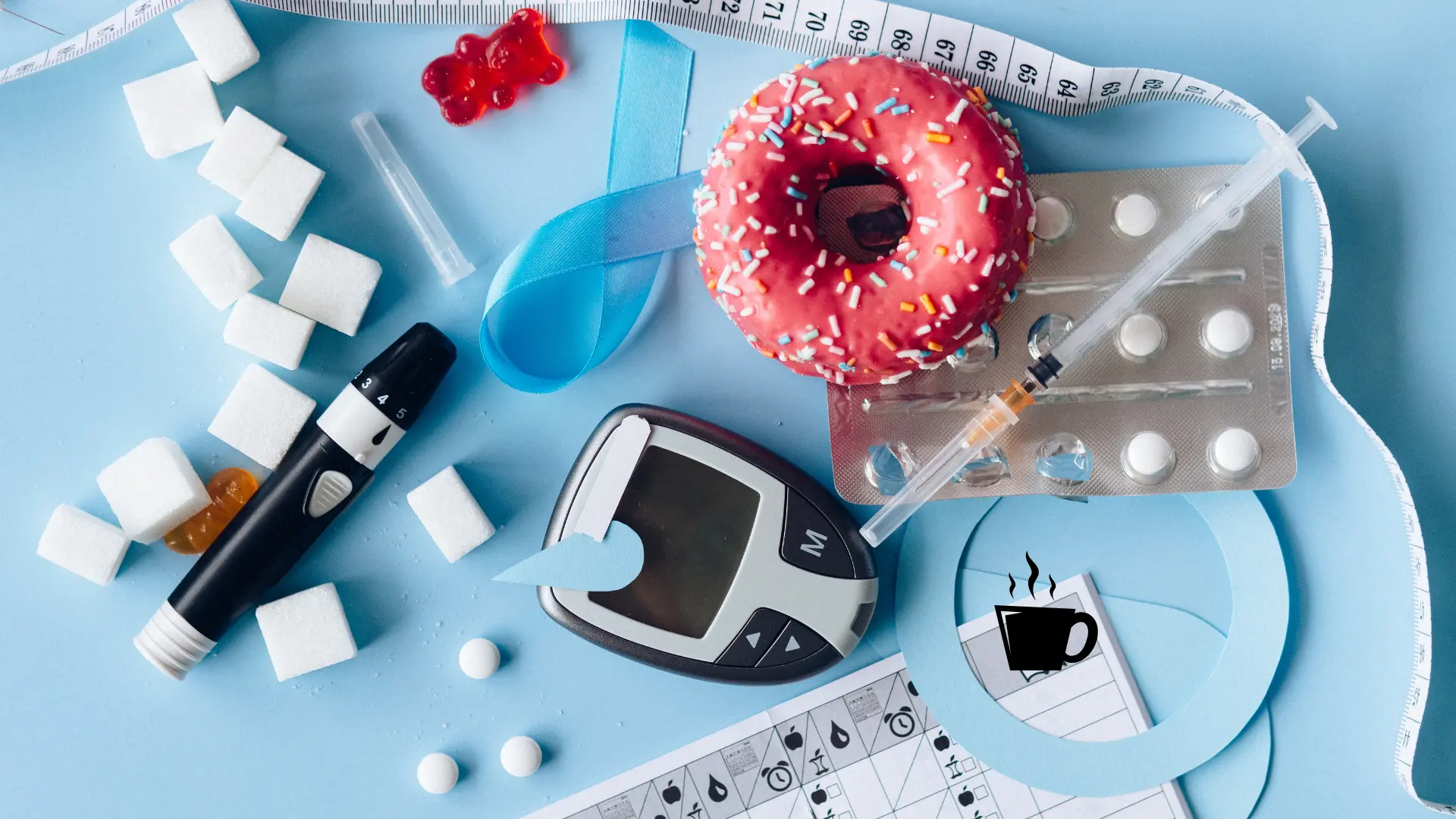Physical Address
304 North Cardinal St.
Dorchester Center, MA 02124

Diabetes is a complex health condition that affects millions of people worldwide. It is a chronic disease that occurs when the body cannot produce or use insulin properly, resulting in high blood glucose levels. In this article, we will explore what diabetes is, the different types, symptoms, causes, and ways of management.
Simply put, diabetes is a condition in which the body has difficulty regulating blood sugar levels. Glucose, which is a vital source of energy for cells, is obtained from the food we consume. Insulin, a hormone produced by the pancreas, is responsible for allowing glucose to enter cells and be used as energy. When the body does not produce enough insulin or does not use it effectively, glucose accumulates in the bloodstream, leading to high blood sugar levels, known as hyperglycemia.
There are different types, with the main ones being type 1 diabetes, type 2 diabetes, and gestational diabetes.
Type 1 diabetes is an autoimmune condition in which the immune system attacks and destroys the beta cells of the pancreas, which are responsible for insulin production. As a result, people with type 1 produce little or no insulin. This form of diabetes usually develops in childhood or adolescence, although it can also occur in adults. Treatment for type 1 diabetes involves administering insulin through injections or insulin pumps.
Type 2 diabetes is the most common form of diabetes and usually develops in adults, although it is becoming increasingly common in children and adolescents due to lifestyle changes. In this type of diabetes, the body still produces insulin but does not use it effectively. Factors such as excess weight, lack of physical activity, and genetic predisposition can increase the risk of developing type 2 diabetes. Treatment for type 2 typically involves lifestyle changes, such as a healthy diet, regular physical activity, and, in some cases, oral medication or insulin.
Gestational diabetes occurs during pregnancy and usually develops in women who have never had diabetes before. During pregnancy, the body produces hormones that can interfere with insulin action, leading to high blood sugar levels. Gestational diabetes can increase the risk of complications during pregnancy and childbirth, both for the mother and the baby. Typically, blood glucose control through diet and exercise is sufficient to manage gestational diabetes, but in some cases, medication may be necessary.
The symptoms can vary depending on the type and severity of the condition, but the most common ones include:
– Increased thirst and hunger
– Frequent urination
– Fatigue
– Blurred vision
– Slow-healing wounds
– Unexplained weight loss
– Tingling or numbness in the hands and feet
The exact causes are still not fully understood, but a combination of genetic, environmental, and lifestyle factors plays a significant role in the development of the disease. Some of the main risk factors for developing diabetes include:
– Family history of diabetes
– Overweight or obesity
– Lack of physical activity
– Unhealthy diet high in sugars and fats
– Advanced age
– High blood pressure
– High cholesterol
– History of gestational diabetes or prediabetes
Although diabetes is a chronic condition with no cure, it is possible to successfully manage the disease and lead a healthy life with proper treatment. Effective management, typically involves a combination of:
– Healthy diet: a balanced diet rich in fruits, vegetables, whole grains, lean proteins, and healthy fats can help control blood sugar levels.
– Regular physical activity: regular physical activity can help improve insulin sensitivity and keep blood glucose levels under control.
– Monitoring blood glucose: regularly monitoring blood sugar levels is essential for diabetes control.
– Medication: in some cases, oral medication or insulin may be necessary to control blood glucose levels.
– Education and support: understanding the condition and learning how to manage symptoms can help people with diabetes lead a full and active life.
In summary, diabetes is a chronic condition that affects the body’s ability to regulate blood sugar levels. There are different types of diabetes, including type 1 diabetes, type 2 diabetes, and gestational diabetes, each with its own causes, symptoms, and treatment methods. With early diagnosis, proper treatment, and a healthy lifestyle, it is possible to successfully manage diabetes and lead a full and active life. If you suspect you may have diabetes or are concerned about your health, consult a doctor for proper evaluation and guidance.




